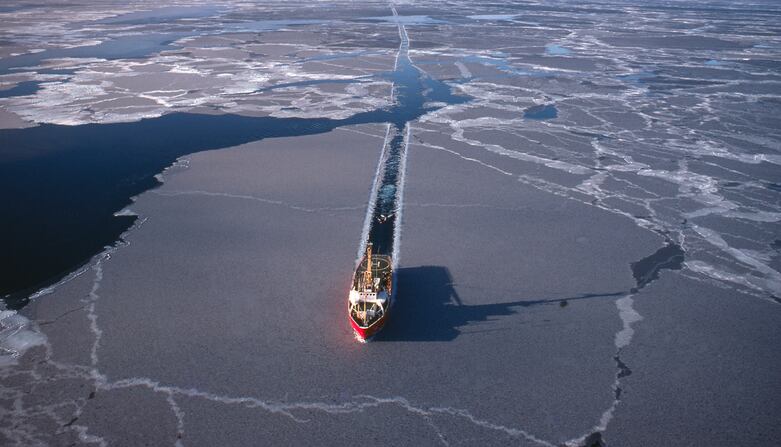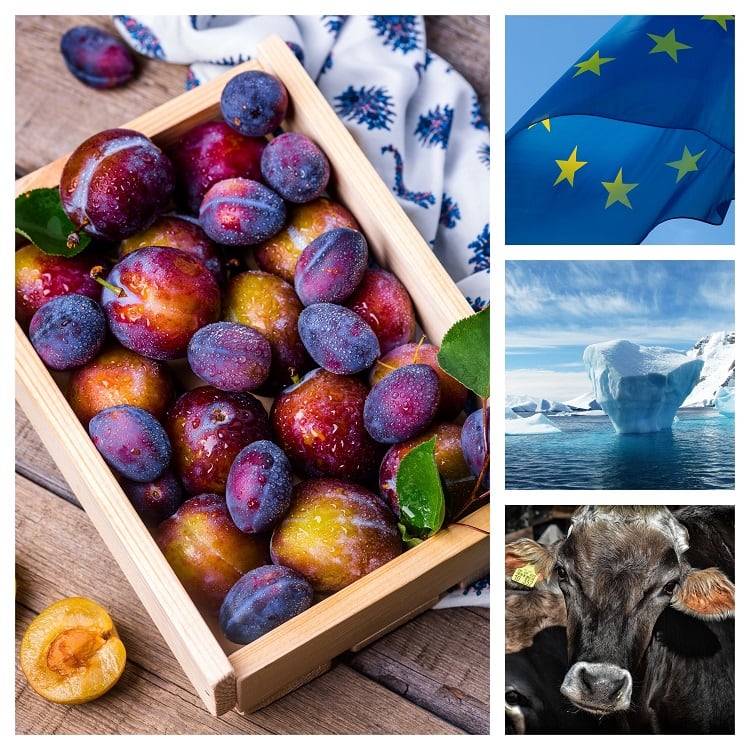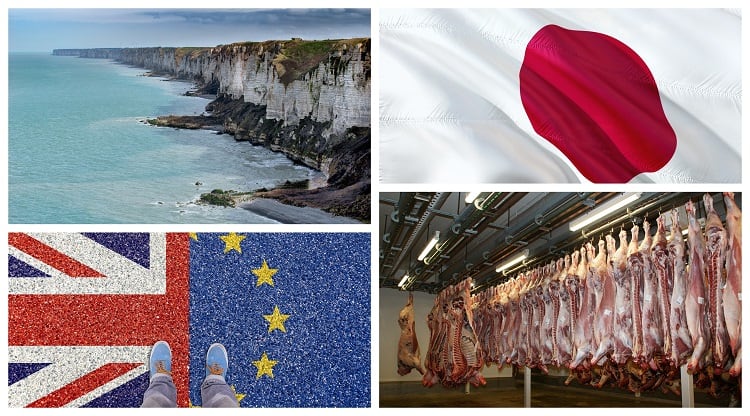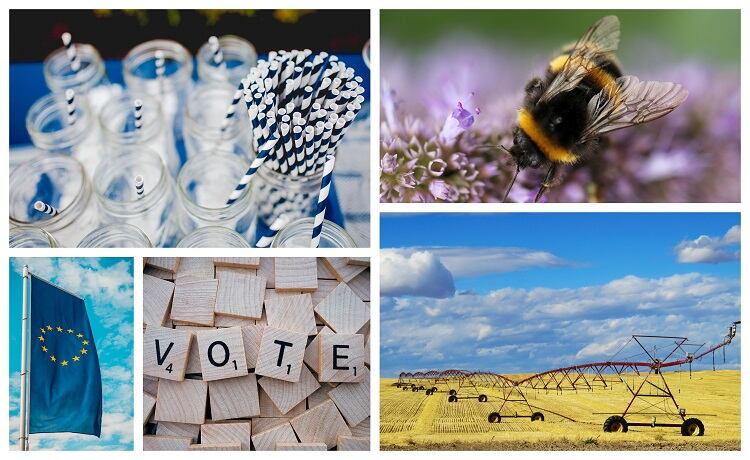BEUC: ‘Europe’s inaction over EDCs must come to an end’
The European Consumer Organisation (BEUC) has called on the yet-to-be elected new Commission and Parliament to address the use of endocrine disruptor (EDC).
EDCs are a group of chemicals that mimic, interfere and block natural hormones. They have been associated with serious health problems, including infertility and hormone-related cancers.
The chemicals can be found in food packaging, in pesticides and biocides in food production, as well as in some cosmetics and toys.
While in November last year, the Commission outlined a plan to improve scientific understanding and encourage dialogue regarding the use of endocrine disruptors (EDCs), BEUC safety and health police offer, Pelle Moos, says more can be done.
“When will the Commission go about reducing exposure to EDCs and better protecting consumers – and when?” he wrote in an article published by the European Chemicals Agency (ECHA).
According to Moos, the EU – which has debated this issue for more than two decades – must make EDCs a top priority in 2019.
The new Commission, to be voted on in May, must regulate the substances we know are EDCs as well as those we suspect of being EDCs, he writes. “EU laws on cosmetics and toys prohibit the use of known and suspected carcinogens – to achieve a high level of consumer protection, the EU should treat EDCs in the same way.”
Secondly, the safety and health officer suggested new leaders apply this approach to all consumer products, including both EU-produced and imported goods. Cumulative exposures should also be reduced, and across all sectors, including in food, childcare, and toys, Moos continued.
“If we are serious about protecting the health of current and future generations, Europe’s inaction over EDCs must come to an end.
“So, let’s not spend another two decades debating how the EU can protect its consumers – the solutions are at hand,” he said.
ENVI backs EU General Food Law
The revised EU General Food Law (GFL) 178/2002 has received the support of the European Parliament’s Environment, Public Health and Food Safety Committee (ENVI).
The changes (available in detail here) include a more science-based approach to food law, a significant budget increase for the European Food Safety Authority (EFSA), as well as increased transparency and risk communications for consumers.
The European Consumer Organisation (BEUC) has supported the ENVI’s decision. “With these new rules, the EU is taking transparency to the next level. It was high time the EU stopped the secrecy around the studies that EFSA uses to appraise the safety of pesticides or additives ending up in our food,” BEUC team leader of food, Camille Perrin, told FoodNavigator.
“However, we wish EU policy-makers had gone the extra mile and not only increased transparency of food safety assessments, but also lifted the lid on the political choices which are made to address the risks identified by EFSA,” she added.
BEUC expects the whole Parliament to similarly ‘greenlight this transparency boost’ when they vote on the deal at the March plenary.
CAP reform process set for early April 2019
According to the European Parliament Committee on Agriculture and Rural Development, the voting period for the next Common Agriculture Policy (CAP) has been fixed for April 2019.
The Committee announced the news on Twitter, saying the committee vote on all three CAP reform files should take place at the beginning of April. “Objection to the proposed decision was voted down.”
The EU agricultural policy, which is responsible for implementing a system of agricultural subsidies across the bloc, has received much criticism of late, with relation to its cost, as well as environmental and humanitarian impacts.
Just last month, while an international meeting of agricultural ministers was taking place in Berlin, protestors took to the street to demand more EU money, under the CAP, be put towards environmental objectives. “We are fed up with the agribusiness industry”, the demonstrators shouted.
Welsh plum gains PDO status
The European Commission has granted a Welsh plum a place on the Protected Designation of Origin (PDO) register.
The European designation aims to protect regional foods that have a specific reputation or quality related to human and environmental factors.
‘The Vale of Clwyd Denbigh Plum’, or Prunus domestica Linnaeus ‘Denbigh Plum’, is the only plum variety native to Wales.
Grown in the area of the Vale of Clwyd in Denbighshire, in North Wales, the plum can be harvested for culinary use in mid-August, or as a dessert plum in late August and early September.
The culinary plum is firm to touch and orangey-red in colour with yellow patches when the plum begins to ripen. When harvested later for use in desserts, the fruit has a rich red and purple shading strewn with golden speckles.
According to the application, the land in the Value of Clywd is some of the most naturally fertile soils in the UK: “The soil present in the Vale have the ability to retain nutrients such as potassium, magnesium and calcium which are key nutrient requirement for these plums.
The knowledge and skill required for growing ‘The Vale of Clwyd Denbigh Plum ‘ in the designated area has developed over time. Specific human skills associated with the growing of this fruit have been passed down from one generation to the next, including: planting and establishment of the plum trees, pruning and tree management, when to harvest, handling the fruit.”
The plum marks the 72nd British food product to be protected under EU law. The full list of PDO and Protected Geographical Indication (PGI) products is available here.
EU against commercial fishing in the Arctic
The EU has approved a treaty to ban commercial vessels from fishing in the Arctic for 16 years.
The agreement, which will protect approximately 2.8 million square kilometres of sea and ice, was also signed by the US, Canada, the Republic of Korea, China, Japan, Iceland, Denmark, Norway and Russia.
While the area is relatively unknown to the commercial fishing industry, since it was traditionally covered with ice, country delegates fear the planet’s warming climate could attract fishing activities.
“The Arctic region is warming at almost three times the global average rate, causing a change in the size and distribution of fish stocks,” according to the European Commission. “As a result, the Arctic high seas may become more attractive for commercial fisheries in the medium to long term.”

There is still a limited understanding of the area’s marine ecosystem, and whether fish stocks in the area could be harvested on a sustainable basis, the Commission continued. “The agreement is fully in line with a long-held position of the European Union that no commercial fisheries should begin in the Arctic high seas before a science-based and precautionary management regime is in place.”
MEPs call on Member States to enforce animal protection laws
MEPs have voted 411 to 43, with 110 abstentions, to support Member States’ enforcement of 2005 EU law – a ruling designed to protect transported animals. The resolution comes after it appeared certain Member States were not applying the 2005 EU law.
“Actors in the transport chain need to live up to their obligations, whether they are farmers, traders of animals, veterinarians, or transport companies," said rapporteur Jørn Dohrmann in a statement.
“This applies to non-EU countries too. As the European Court of Justice said, the EU is responsible for animals even after they have left its territory. Therefore, either those countries ensure as high a level of protection for transported animals as we do or we should ban exports of live animals to those countries”, he added.
According to the MEPs, Member States that don’t comply should be fined by the Commission. In addition, MEPs have pushed for a new 2020-2024 ‘animal welfare strategy’ and suggested geolocation systems for animal tracking and real-time video surveillance be implemented during transport.
"We have now made it clear to the Commission and the member states that they must do so, either by enforcing current rules properly or by looking into new policy tools to apply new technology and minimise transport times,” said Dohrmann.




